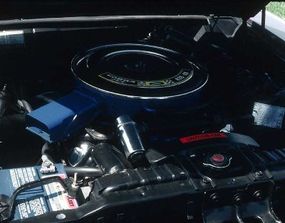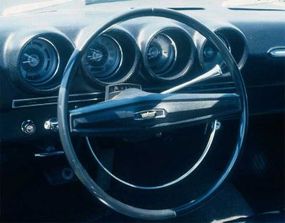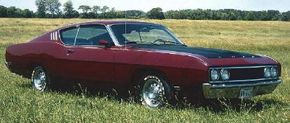It may not have been the muscle car a purest would have conjured up, but the 1969 Ford Talledga was on its own special mission.
Ford spent a lot of the 1960s and early 1970s watching the taillights of quicker Mopar and GM muscle rivals. But in NASCAR, the forces from Dearborn were consistent front-runners. For '69, their new machine was so hot that even superstar Richard Petty defected from Plymouth to drive it. It was called the Talladega, after NASCAR's newest superspeedway. This was Ford's answer to Dodge's wind-tunnel wonder, the Charger 500, and as required of Dodge, Ford built street versions to qualify it for racing.
Advertisement
The Talladega was based on the 1969 Fairlane Cobra SportsRoof, but with some vital aerodynamic differences. The nose was tapered and stretched by five inches, and a flush-mounted grille replaced the recessed production one. The front bumper was actually a Fairlane rear bumper narrowed to fit. And the rocker panels were raised one inch so the race cars could be lowered correspondingly without violating NASCAR's ride-height requirements.

NASCAR versions ran Ford's 427-cid V-8, then switched to the Boss 429. Street Talladegas used the 335-bhp 428 Cobra Jet with a columnshift automatic. None had ram air, but all got a Drag Pack oil cooler. Cobra-issue bench-seat interiors were used.

Mercury quickly copied the formula, producing the Cyclone Spoiler II. With unique striping and a rear spoiler, street versions were flashier than Talladegas, though Mercury made the 290-bhp 351 V-8 standard and the 428 CJ an option.

Ford's aero warriors trounced the Charger 500, winning 30 races, including eight by Petty, and bringing Ford the '69 NASCAR title. When the King Cobra version of the redesigned '70 Torino disappointed in testing, the '69 Talladegas and Spoiler IIs were retained for NASCAR's 1970 season. Petty had been lured back to Plymouth by its radical Superbird, and the title returned to Chrysler. But Ford had produced a real winner, and by happy necessity, unique members of the muscle fraternity.
Return to Classic Muscle Cars Library.
Advertisement
